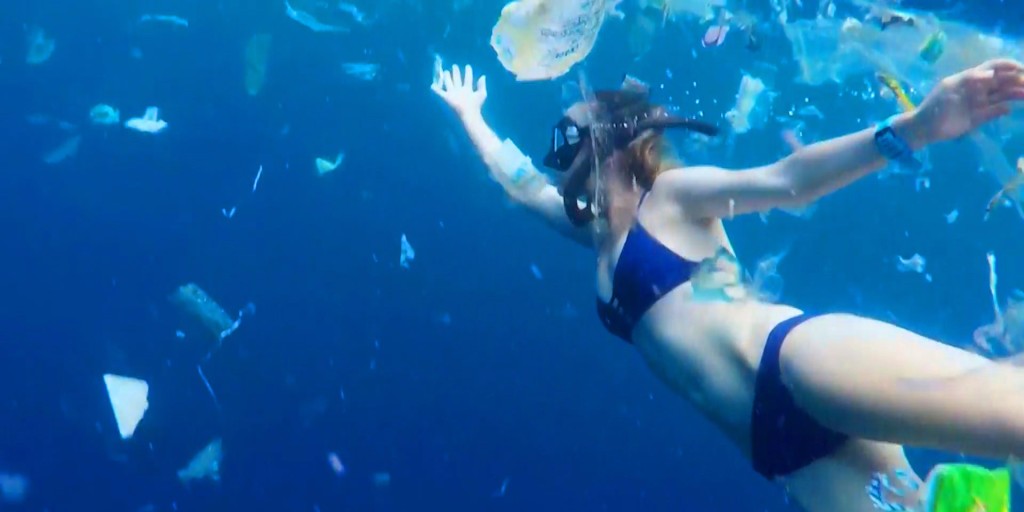Waste Plastic in Our Oceans

Of course, the same could be said about climate change, but there are a few important differences:
- At this point it’s impossible to attribute any one disaster (storm, wildfire, flood, drought, etc.) to climate change, but pictures of ocean plastic and the damage it very visibly causes, e.g., mutilated sea turtles, are ubiquitous online.
- Where our lives are, in fact, made more convenient, comfortable and productive by fossil fuels and beef cattle, this is certainly not the case with ocean plastic.
- There is no controversy about ocean plastic, where there are still people who refute the theory of anthropogenic global warming (though they are almost exclusively outside the scientific community).
The effect of ocean plastic pollution is not limited to aquatic plants and animals. Seawater absorbs highly toxic pollutants which have a wide range of chronic effects on human health, including endocrine disruption and cancer-causing mutations. Pediatricians are starting to recommend that little children not eat food served on plastic plates with traditional plastic cutlery.
The issue grabs even more public attention due to the fact that there are literally hundreds of groups dedicated to finding solutions. Some are huge, and very broad in nature, e.g., the Sierra Club, where others are dedicated to this one issue, e.g., The Surfrider Foundation.
As can be expected, young people tend to be more adamant and involved in solving the problem than the population at large. Evidence of this is the skyrocketing number of environmental and marine sciences majors in our colleges and universities, as well as the fabulous amount of PR granted to young inventors with ideas, even though some of these concepts are of dubious credibility. On YouTube, there are dozens of videos on “ocean plastic cleanup machine” that have literally millions of views.
Of course, the mainstream press has been covering this subject with ever-increasing activity as well. CBS’s “60 Minutes” did a story on the subject a few weeks ago, and NPR’s “All Things Considered” did a piece on January 16th.
There is also an understanding that cleaning up our oceans while continuing to fill them with waste plastic is an asinine idea; it makes no more sense than draining one’s swimming pool at one end while filling it from the other.
We are learning more all the time about plastic toxicity and the uncollectable nature of micro-plastics, and literally none of it is good news; this is a story that’s getting sadder and more hopeless as time passes.
I’d love to be able to sell these people marketing services, but, given that there is literally no easier PR environment on Earth at this point than that which surrounds reducing waste plastic, I’m not even going to try.
